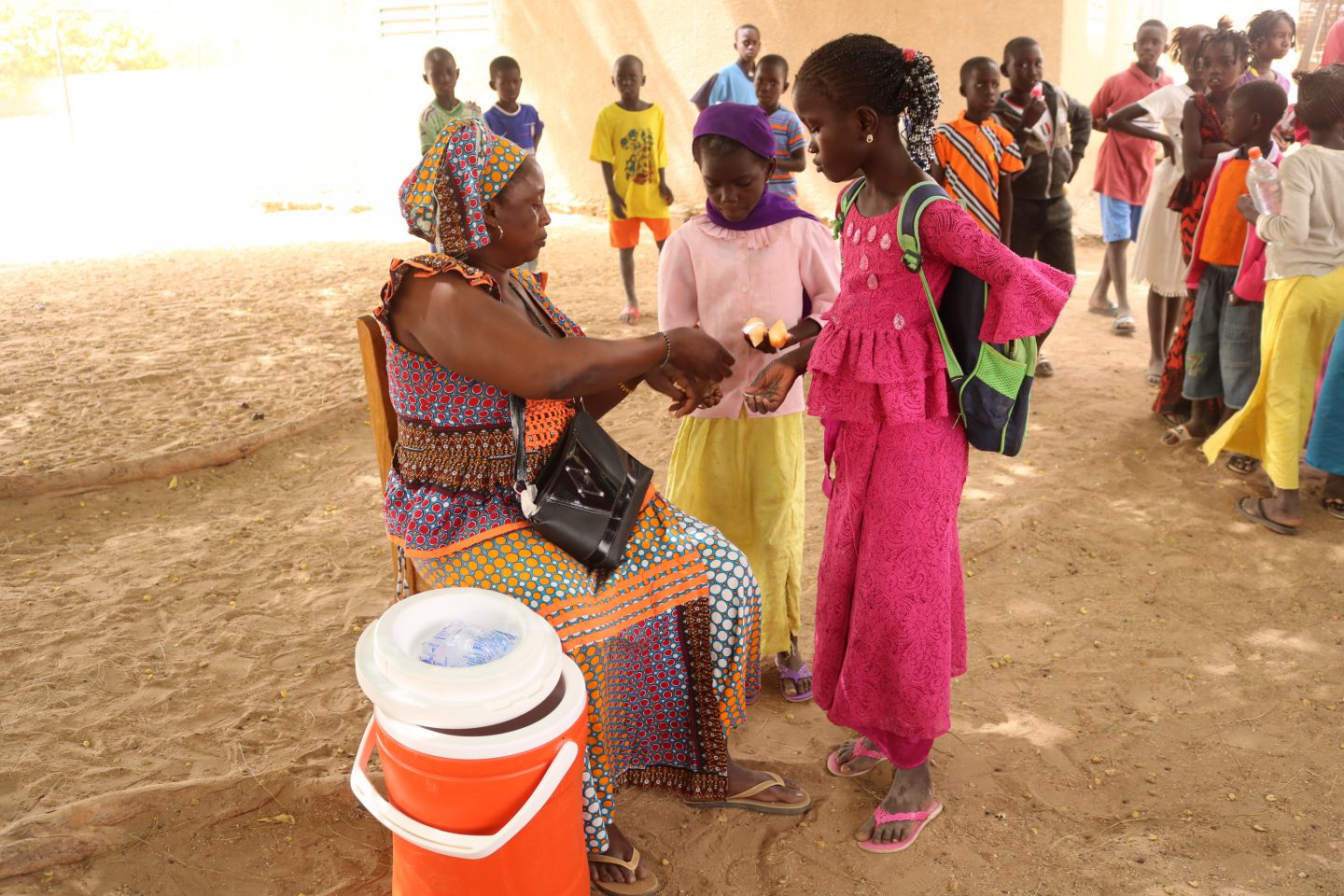Business is booming for Senegalese entrepreneur Awa Sene, the first cold trader in the rural village of Khassid, located 150 km southwest of Dakar. The solar freezer that she purchased 18 months ago has enabled her to generate healthy profits by selling refrigerated and frozen products such as fruit juices, yogurt, milk, ice and chilled water. Cold trading can be a reliable source of revenue in non-electrified areas like Khassid. Since her customers gained access to such products for the first time, demand has remained consistently high.
The grocery shop that she opened a few months ago in the village market as a way to diversify her income is doing well. So, she’s recently opened another shop in her own home, selling basic goods such as sugar, cereals, rusk, coffee, powdered milk, jams, sugar cookies, confectionery, oil, vinegar, mayonnaise, mustard and spices. Awa entrusted the management of both shops to her sisters in order to focus on the production of juices, ice creams and yogurt and to the sale of these products in local schools. She has become particularly passionate about selling these products to schools. She contends that providing fresh and nutritious food and drink to schoolchildren, rather than sugary snacks and beverages filled with artificial preservatives, is key to their wellbeing and cognitive development.
Awa’s enterprises have been so successful that she managed to repay the entirety of the 24-month loan she took on to buy the solar freezer in just 11 months. She also managed to save enough money to complete some long-awaited home improvements and purchase a bus pass for her student daughter. Last February, however, she suffered a setback. The batteries of her solar freezer had started to deteriorate. “My freezer turned off after three hours so I had to stop producing juices, cream and ice,” Awa explains. “This had a big impact on my revenue. The only thing I could sell then was fresh milk.” As a result, Awa saw her turnover drop by nearly half. A technician from the freezer supplier visited Awa to assess her system. The batteries were dead, but since the 15-month warranty had expired, he could not replace them free of charge. “Battery-powered solar freezers are a great asset for an off-grid business such as Awa’s”, explains Papa Magatte Ly, Energy 4 Impact’s Technical mentor, “but the batteries are expensive. Their typical lifespan of three or four years can be reduced by up to half in a hot climate because the external temperature normally exceeds the recommended operating temperature of 25°C by 10°C or more.”
Cold traders like Awa face some tough economic decisions. “There are more durable batteries on the market with longer warranties, but they are far too expensive for typical micro-entrepreneurs,” says Magatte. “We always advise our entrepreneurs to put aside some money each month for the maintenance of system parts such as the solar PV panels, the regulator and the batteries. In case one of the components becomes defective after the supplier’s warranty ends.”
A set of two freezer batteries cost USD 530, but Awa had already spent most of her savings on house repairs. She therefore had no choice except to ask for outside help. Fortunately, one of Energy 4 Impact’s partners, PRODER, an initiative by Fatick’s Regional Development Agency to help female entrepreneurs access solar energy technologies, granted Awa 200,000 francs (USD 330) towards the cost of the new batteries. As she was able to fund the shortfall herself, Awa quickly replaced the batteries and resumed trading. Her enterprise is now back on track and her business mentor is confident that she will recoup the cost of the batteries quickly due to the dynamism of her business diversification strategy.











Follow us on: